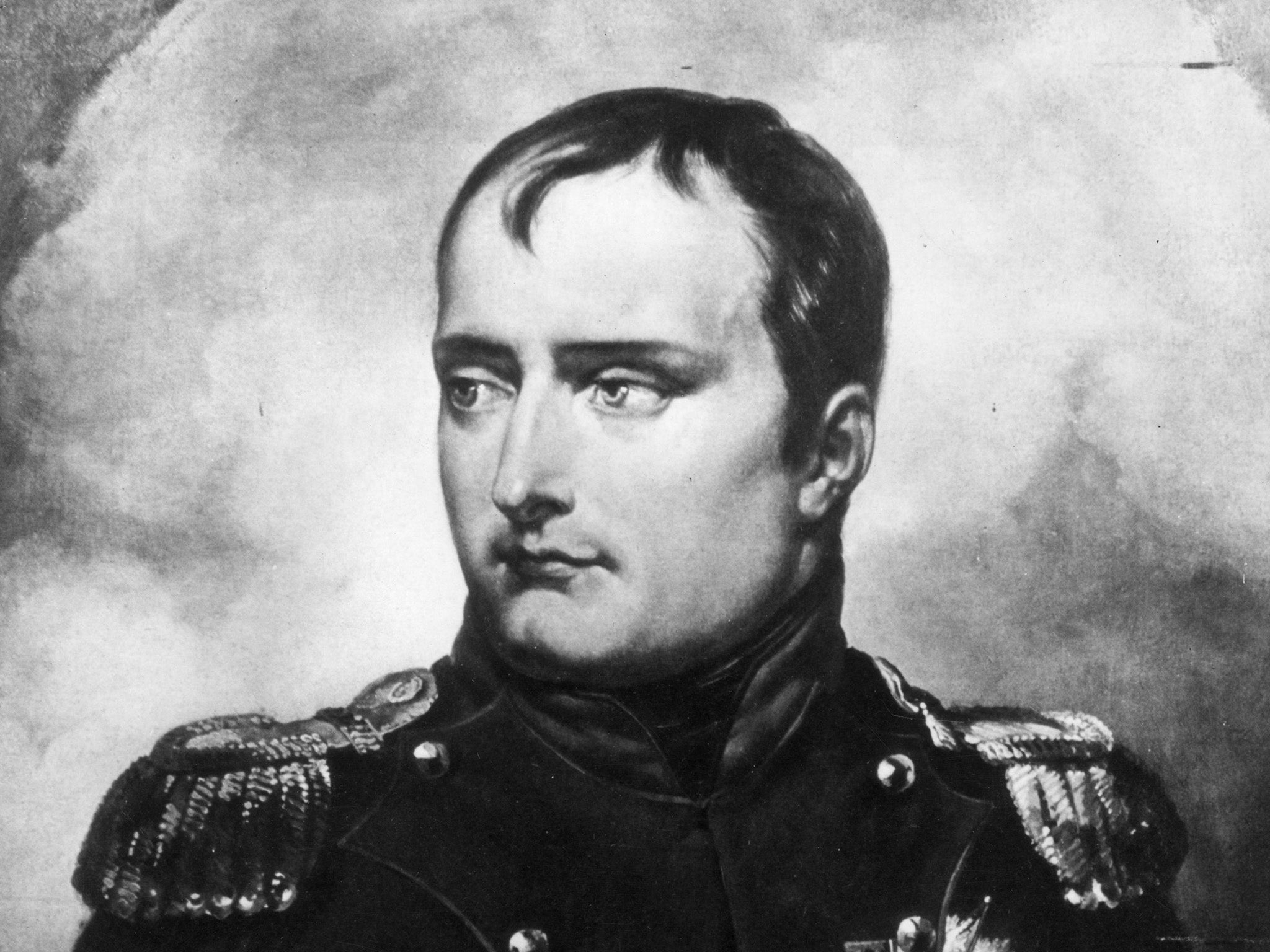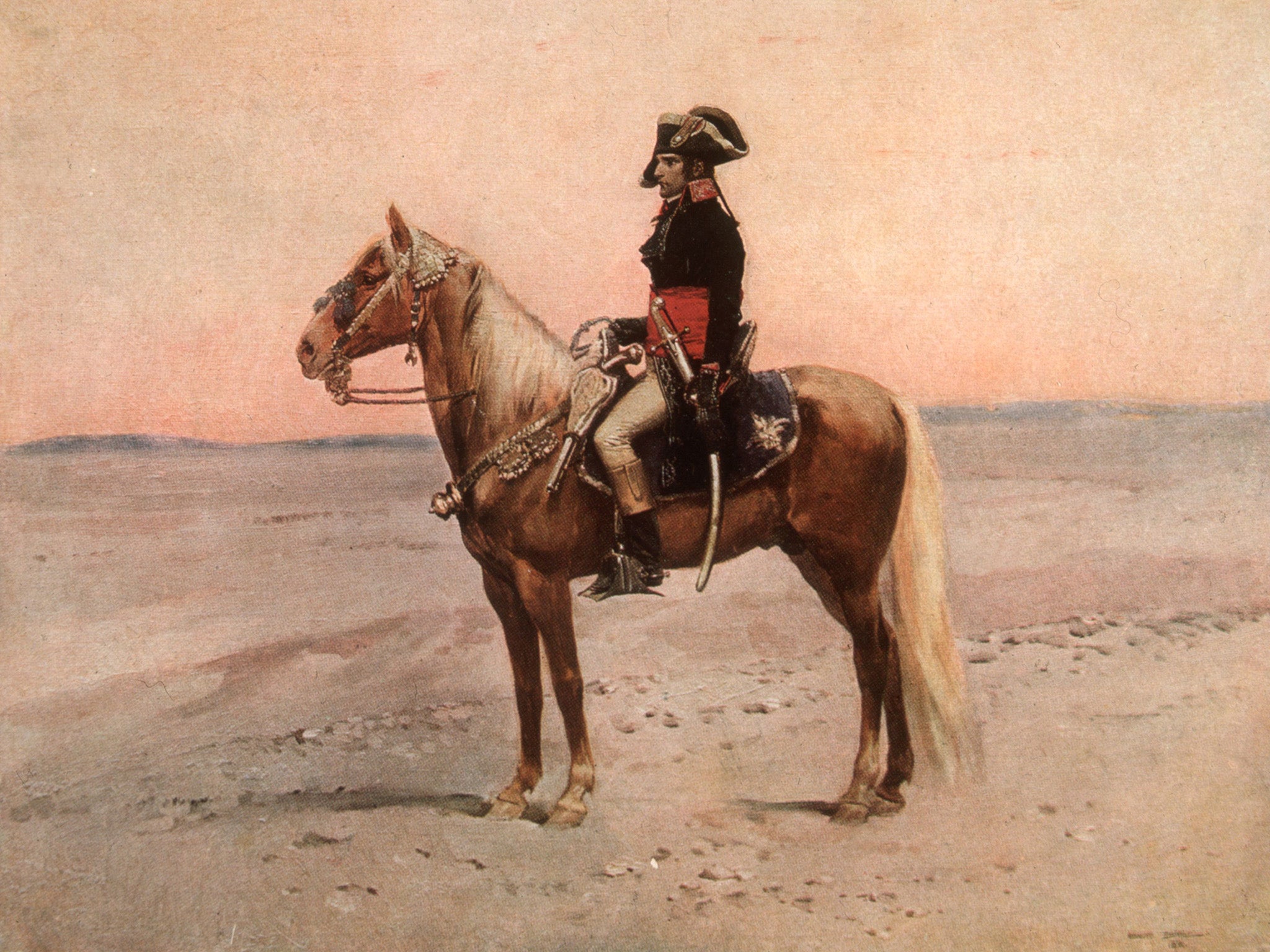What did Napoleon read? Inside the French Emperor's travelling campaign library
Every Wednesday, Alex Johnson delves into a unique collection of titles

Theatre de Corneille, 5 vols
Theatre de Racine, 4 vols
Theatre de Voltaire, 5 vols
Ourves de Boileau, 1 vol
Fables de La Fontaine, 2 vols
Contes de La Fontaine, 2 vols
La Pucelle d’Orleans, par Voltaire, 1 vol
Ourves de Gresset, 1 vol
Ourves de Bernis, 1 vol
Ourves de Vergier et Grecourt, 1 vol
Ourves de Molier, 7 vols
Ourves de Piron, 2 vols
Letters a Emilie sur la Mythologies par Demoustier, 3 vols
Grandeur des Romains par Montesquieu, 1 vol
Discours sur L’History Universelle par Bossuet, 3 vols
Histoire de Gil Blas par Lesage, 5 vols
Les Amours de Daphnis et Chloe, 1 vol
Histoire du Petit Jehan de Saintre et de Gerard de Nevers par Trefsau, 1 vol
Memoires de Grammont, 2 vols
Telemaque, 1 vol
Napoleon was arguably the best-read emperor the world has ever seen. As a young man he particularly enjoyed Plutarch’s Lives of the Noble Grecians and Romans, and in exile on Saint Helena one of his favourites was Paul et Virginie by Jacques-Henri Bernardin de Saint-Pierre.
But he was also keen not to be separated from reading matter while on campaigns, so wisely commissioned various travel libraries which were put together by his personal librarian Antoine-Alexandre Barbier.
These contained hundreds of volumes and covered military tactics, history, geography and religion as well as novels, poetry and plays.
In addition to these, he also ordered a smaller, more manageable travel library in a wooden box resembling a large book measuring around 15 by 10 inches, stocked with French classics in appropriately bespoke smaller format (see list above).
Each volume was bound in roan leather and tooled in gilt. As well as the ones for his own use on campaigns, he gave sets to his generals, with the number of volumes varying from around a dozen up to 50.
Travelling libraries had been popular for centuries before Boney. Henry VIII travelled with chests full of books as he wandered around England, and Francis I had a similar arrangement in France, with Appian, Justinus and Thucydides among its featured authors.

Around 100 years later, English antiquarian and MP William Hakewill (1574-1655) commissioned several travelling libraries as gifts for friends and patrons. Inside the booklike structure were three shelves of miniature-edition classics bound in vellum and with gold-tooling on the spines, which also each feature a flower. The cover of every volume features a golden angel holding a scroll bearing “Gloria Deo”.
Several still survive, including one in the British Library, which was owned by master of the rolls Sir Julius Caesar (1558-1636) and another in the Brotherton College at the library of the University of Leeds.
There is a painted catalogue of the contents on the inside “front cover” – one shelf for theology and philosophy, one for history, and one for poetry – including works by Cicero, Julius Caesar (no relation), Seneca, Horace, Virgil and Ovid.
One of the most interesting features of these travelling libraries is their size, which appears very familiar to modern eyes – Stella Butler, university librarian and keeper of the Brotherton collection, describes them as “essentially a 17th century ebook reader”.
Now somewhat out of fashion, travelling libraries are still with us. Tom Stoppard travels with a book satchel from New York luggage specialist T Anthony which is about the size of a bread bin and can hold up to around a dozen books. As an example, on a trip to New York in 2007, his packing list included:
50 Mathematical Ideas You Really Need to Know by Tony Crilly
Ethics by GE Moore
Blackwater by Jeremy Scahill
Gravity’s Rainbow by Thomas Pynchon
A Book of Book Lists’ by Alex Johnson, £7.99, British Library Publishing
Join our commenting forum
Join thought-provoking conversations, follow other Independent readers and see their replies
Comments
Bookmark popover
Removed from bookmarks